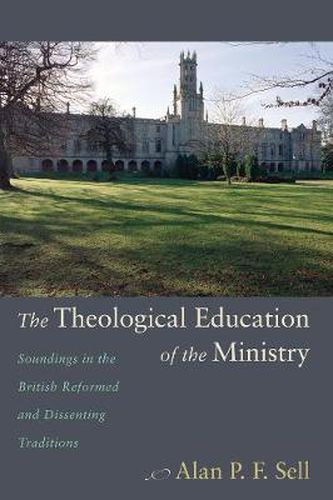Readings Newsletter
Become a Readings Member to make your shopping experience even easier.
Sign in or sign up for free!
You’re not far away from qualifying for FREE standard shipping within Australia
You’ve qualified for FREE standard shipping within Australia
The cart is loading…






This title is printed to order. This book may have been self-published. If so, we cannot guarantee the quality of the content. In the main most books will have gone through the editing process however some may not. We therefore suggest that you be aware of this before ordering this book. If in doubt check either the author or publisher’s details as we are unable to accept any returns unless they are faulty. Please contact us if you have any questions.
Unwilling on conscientious grounds to submit to the religious tests imposed by the Universities of Oxford and Cambridge, the English and Welsh Dissenters of the second half of the seventeenth century established academies in which their young men, many of them destined for the ministry, might receive a higher education. From the eighteenth century onwards, theological colleges devoted exclusively to ministerial education were founded, while in Scotland historically, and in England and Wales over the past 120 years, freestanding university faculties of divinity/theology have provided theological education to ordinands and others. These diverse educational contexts are all represented in this collection of papers, but the focus is upon those who taught in them: Caleb Ashworth (Daventry Academy); John Oman (Westminster [Presbyterian] College Cambridge); N. H. G. Robinson (University of St. Andrews); Geoffrey F. Nuttall (New [Congregational] College, London); T. W. Manson (University of Manchester); Owen Evans (University of Manchester and Hartley Victoria Methodist College)–the lone Methodist scholar discussed here; and W. Gordon Robinson and J. H. Eric Hull (University of Manchester and Lancashire Independent College). Between them these scholars covered the core disciplines of theological education: biblical studies, ecclesiastical history, philosophy, doctrine, and systematic theology.
$9.00 standard shipping within Australia
FREE standard shipping within Australia for orders over $100.00
Express & International shipping calculated at checkout
This title is printed to order. This book may have been self-published. If so, we cannot guarantee the quality of the content. In the main most books will have gone through the editing process however some may not. We therefore suggest that you be aware of this before ordering this book. If in doubt check either the author or publisher’s details as we are unable to accept any returns unless they are faulty. Please contact us if you have any questions.
Unwilling on conscientious grounds to submit to the religious tests imposed by the Universities of Oxford and Cambridge, the English and Welsh Dissenters of the second half of the seventeenth century established academies in which their young men, many of them destined for the ministry, might receive a higher education. From the eighteenth century onwards, theological colleges devoted exclusively to ministerial education were founded, while in Scotland historically, and in England and Wales over the past 120 years, freestanding university faculties of divinity/theology have provided theological education to ordinands and others. These diverse educational contexts are all represented in this collection of papers, but the focus is upon those who taught in them: Caleb Ashworth (Daventry Academy); John Oman (Westminster [Presbyterian] College Cambridge); N. H. G. Robinson (University of St. Andrews); Geoffrey F. Nuttall (New [Congregational] College, London); T. W. Manson (University of Manchester); Owen Evans (University of Manchester and Hartley Victoria Methodist College)–the lone Methodist scholar discussed here; and W. Gordon Robinson and J. H. Eric Hull (University of Manchester and Lancashire Independent College). Between them these scholars covered the core disciplines of theological education: biblical studies, ecclesiastical history, philosophy, doctrine, and systematic theology.